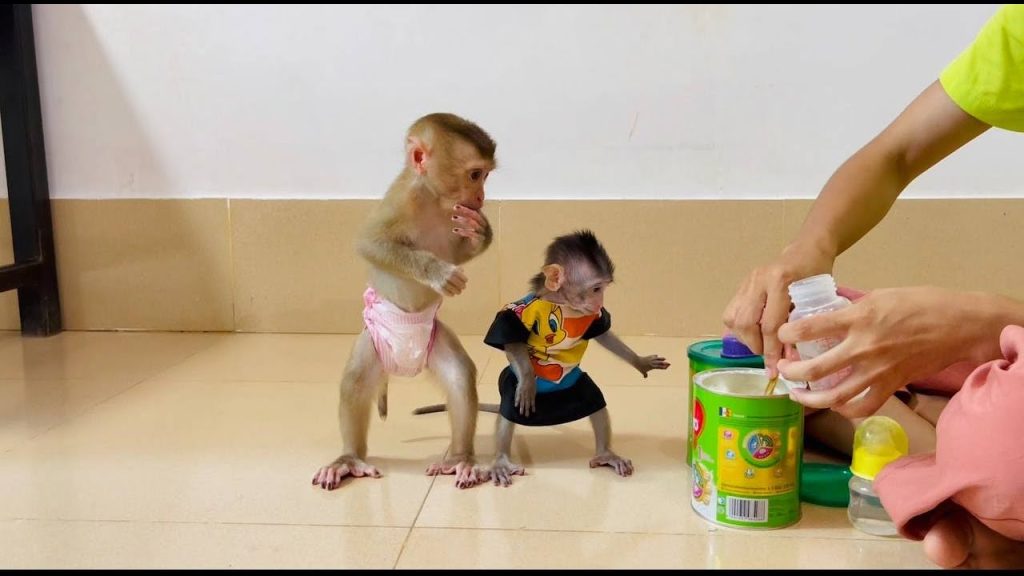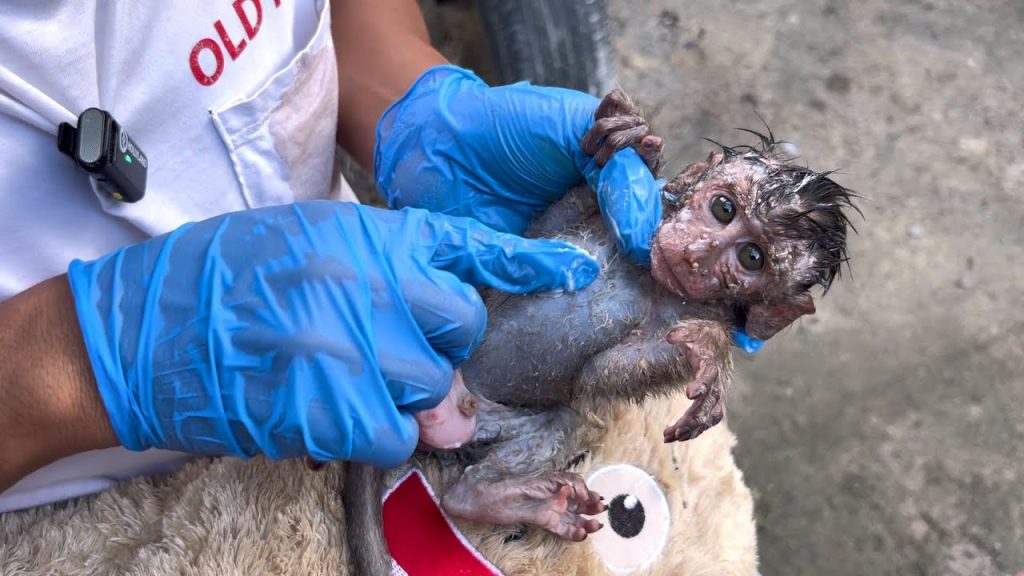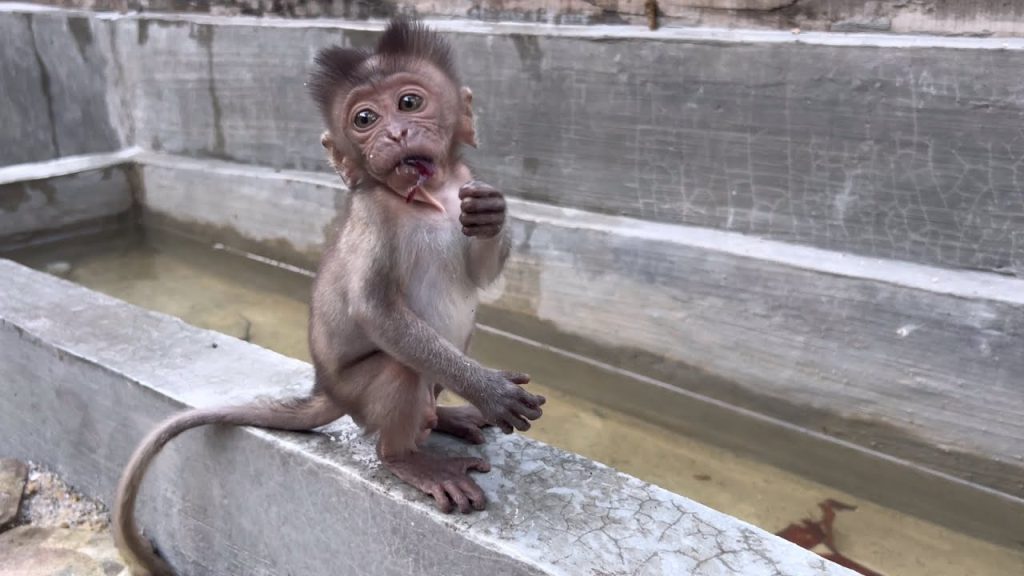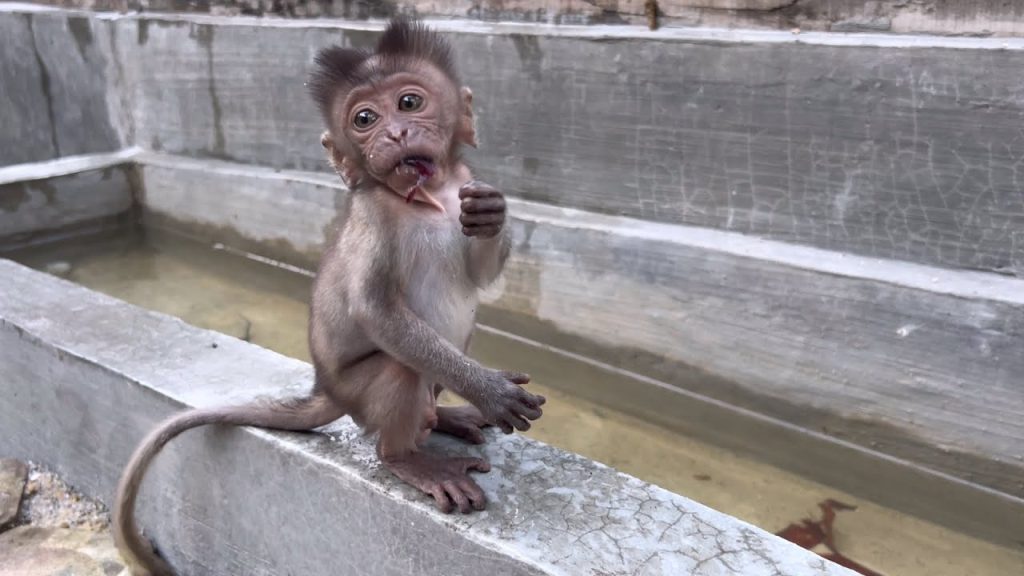
Newborn baby monkeys exist in a fragile window between instinct and physiology, and one of the most misunderstood behaviors in that early window is frequent choking. Many people assume choking means anger, stubborn personality, or that the infant is being “dramatic,” but the reality is far simpler and more biological: their brains are not yet synchronized with their bodies. A newborn primate begins life with only partially coordinated reflexes. The suck-swallow-breathe sequence, which seems automatic in adult animals, is still under construction. This is why newborn monkeys often look frantic, jerky, or unsteady while trying to drink. Their drive to eat is strong, their hunger is real, but the neurological timing that safely moves liquid from mouth to throat while also maintaining breathing rhythm is still unreliable in the earliest stage of life.
Another important layer behind this tendency is the nature of feeding itself. Wild monkey mothers regulate position, milk flow rate, nipple pressure, and timing automatically. An infant drinking directly from a biological mother gets instinct-appropriate control: the nipple is shaped specifically for that species, the milk flow is naturally limited by biomechanics, and the infant holds on in a posture that keeps the airway more protected. In human-handled situations — whether in rescue centers or artificial feeding setups — the milk source is different. Bottles, synthetic nipples, and human hands are not perfect copies of the natural system. If the milk stream is faster than what the infant’s reflexes can handle, choking becomes more frequent not because the baby is weak, but because the flow overwhelms its still-developing rhythm.
Physical weakness can also play a role. Orphans who lost their mother early may not have had enough time to nurse naturally, so their facial muscles and swallow patterns are less practiced. Premature infants — both human and monkey — share the same issue: the mechanisms are biologically present, but immature. Add to this the possibility of mild respiratory congestion from environmental irritants, stress, or early infection, and the challenge intensifies — even a small amount of mucus in the nasal passage makes safe swallowing dramatically harder.
So “choking often” is not an attitude. It is a reflection of delicate physiology, incomplete neural timing, and the simple scientific truth that newborns — in any primate species — begin life with a body that is still learning how to do basic survival tasks correctly.


